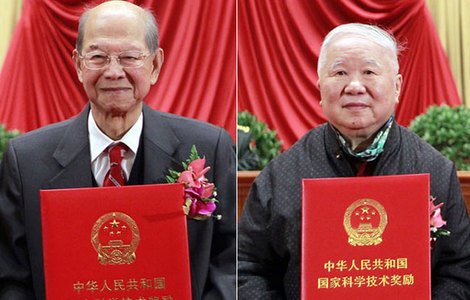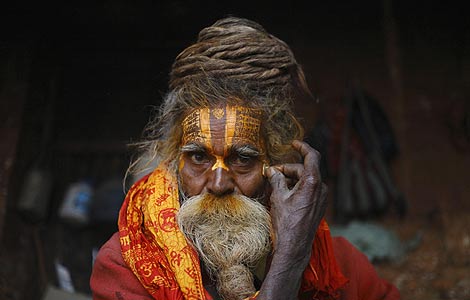Nation intensifies chase after 'new-type' drug makers
Updated: 2012-02-15 07:47
By Zhao Yinan (China Daily)
|
|||||||||||
Court official says border areas are most vulnerable for smuggling
BEIJING - China will step up its efforts against illegal drug making as it fights drug trafficking and smuggling, a senior judge said on Tuesday.
Ma Yan, vice-president of a criminal tribunal under the Supreme People's Court, said illegal drug making, particularly regarding new drugs such as methamphetamine, or "ice", is significantly on the rise. The increase is especially noticeable in some border areas owing to "domestic and overseas factors".
Border areas such as the southwest and northeast parts of China are the most vulnerable, Ma said, and to expand the fight against criminal drug makers will significantly aid efforts against drug smuggling.
Ma conceded that some laws and regulations have lagged behind the evolution of drug-related crime and said the court is studying new judicial interpretations against new drugs to speed the response to the ever-changing situation.
In 2008, the top court broadened the interpretation of criminal drug making to include the new drugs.
Some criminals are distilling and purifying flu medicines such as Contac, which contains ephedrine, to make the new drugs.
Previously, such activity was not legally defined as "drug making and smuggling", Ma said.
Yang Wu, a 32-year-old farmer, was among those targeted by the change.
Yang was sentenced death for smuggling with his accomplices up to 18 kg of the new-type drugs from 2008 to 2009. They transported the drug from Southwest China's Yunnan province, which borders Myanmar, and sold it in East China's Zhejiang province.
Capital punishment is considered in cases involving the production or smuggling of "a large amount of drugs" and for repeat offenders, Ma said, without specifying how many of the criminals have been sentenced to death.
Sun Jungong, spokesman of the Supreme People's Court, said last year more than one in four dealers among the total 19,000 drug criminals received severe sentences - from five years in prison to the death sentence - 11 percent more than those convicted of other types of crime.
Hot Topics
Kim Jong-il, Mengniu, train crash probe, Vaclav Havel, New Year, coast guard death, Internet security, Mekong River, Strait of Hormuz, economic work conference
Editor's Picks

|

|

|

|

|

|






